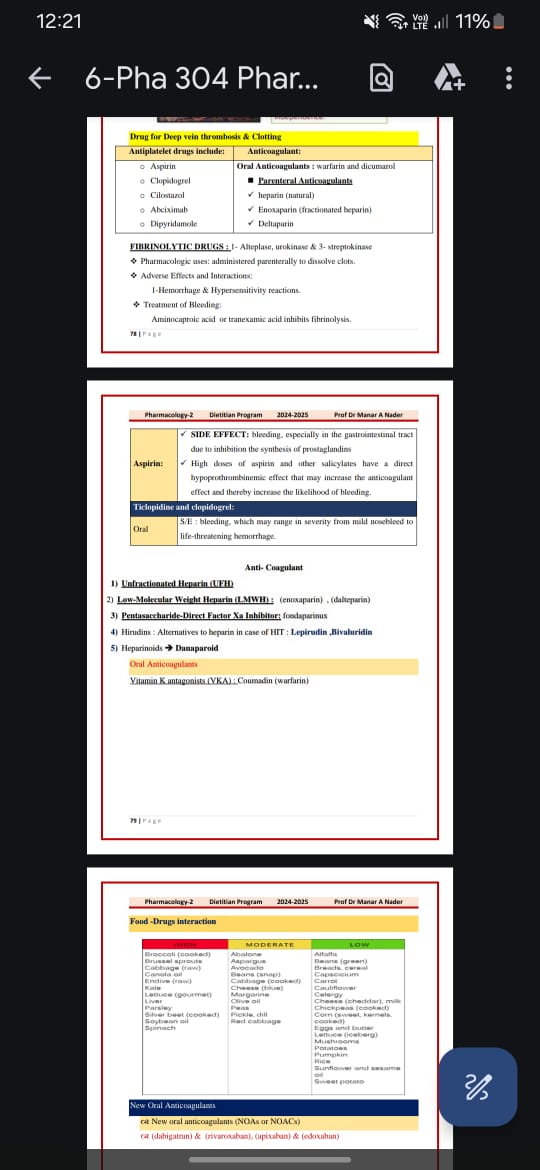What are the drugs for deep vein thrombosis and their associated side effects?

Understand the Problem
The question relates to pharmacology and specifically focuses on anticoagulant drugs, their side effects, and interactions, particularly regarding deep vein thrombosis and bleeding treatment.
Answer
Anticoagulants (heparin, warfarin) and fibrinolytics (alteplase) treat DVT; side effects include bleeding.
The main drugs for deep vein thrombosis (DVT) are anticoagulants like heparin, warfarin, rivaroxaban, and apixaban. Side effects include bleeding risks, hypersensitivity reactions, and gastrointestinal issues. Fibrinolytics like alteplase can cause bleeding and hypersensitivity.
Answer for screen readers
The main drugs for deep vein thrombosis (DVT) are anticoagulants like heparin, warfarin, rivaroxaban, and apixaban. Side effects include bleeding risks, hypersensitivity reactions, and gastrointestinal issues. Fibrinolytics like alteplase can cause bleeding and hypersensitivity.
More Information
Anticoagulants prevent blood clot growth and recurrence, and newer ones, like DOACs (direct oral anticoagulants), require less monitoring. Fibrinolytics actively dissolve clots.
Tips
A common mistake is confusing anticoagulants and antiplatelet drugs, which work differently. Anticoagulants are more specific for DVT.
Sources
- Medications for Deep Vein Thrombosis (DVT) | Stanford Health Care - stanfordhealthcare.org
- Medication for Deep Vein Thrombosis - NYU Langone Health - nyulangone.org
AI-generated content may contain errors. Please verify critical information